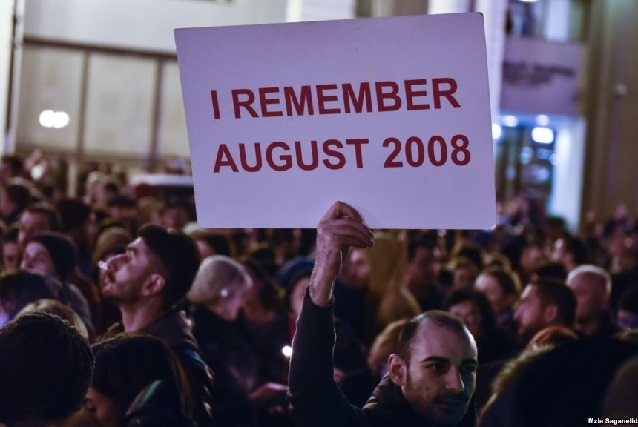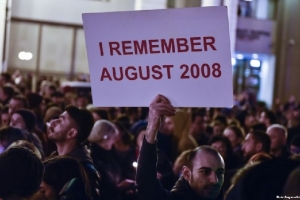United States has Regrets on Conflict in Georgia
On June 19 - 20, Georgia, Russia, representatives of the de facto Abkhazia and South Ossetia, and the United States participated in the forty-fourth round of the Geneva International Discussions (GID). GID began to address the consequences of the conflict in Georgia in 2008 and are co-chaired by the European Union, the United Nations, and the Organization for Security and Cooperation in Europe.
In a U.S. Embassy in Georgia press statement on the GID discussion, the United States reiterated its support for Georgia’s territorial integrity within its internationally recognized borders, fully endorsing the country’s sovereignty and independence from Russia.
The United States repeated expectations that Russia fulfills its obligations outlined by the six-point Ceasefire Agreement of 12 August 2008, including the withdrawal of Russian forces.
According to an overview of the situation in Georgia by the United Nations, the six principles of the agreement are: (1) the commitment to terminate the use of force; (2) the immediate and definitive halting of hostilities; (3) free access to humanitarian aid; (4) the withdrawal of Georgian military to their places of permanent deployment; (5) the withdrawal of Russian forces to their lines of deployment prior to 7 August 2008; and (6) the convening of international discussions on security and stability arrangements for Abkhazia and South Ossetia. The UN reported discussions that lead to the agreement and ensued after its enaction on August 19, 2008. Georgia cited failures to comply on behalf of Russia, while a Russian diplomat, Mr. Churkin, countered that Georgia is not sufficiently cooperating either.
A decade later, at the convening of the 44th Geneva International Discussion, progress is limited by the cooperation of Russia and differing opinions regarding a way to move forward on a non-use of force statement.
The United States regrets that discussion of internally displaced persons was neglected because of the walk-out by the representatives of Russia, Abkhazia and South Ossetia. The United States also regrets the stagnation on other humanitarian issues such as freedom of movement and non-discriminative, mother-tongue-based language education for children.
The U.S. Delegation applied pressure for more compliance from authorities of South Ossetia in conducting full and transparent investigations into the death of Archil Tatunashvili, who is said to be a member of Georgian armed forces. He died after his arrest on February 22, 2018 during detention in Tskhinvaliand. Tatunashvili’s family members live in Tsilkani settlement of internally displaced persons from Tskhinvali Region/South Ossetia; they have requested transfer of his body to Tbilisi-administered territory, but have been rejected by Tskhinvali representatives performing an “independent examination” of Tskhinvali autopsy materials conducted in Russia before release of the body.
According to an article published June 26, 2018 by a state news agency of South Ossetia, "the attempts of the Georgian delegation were unsuccessful, since Georgia has no reason to claim the murder of Tatunashvili."
The US extends concern of malpractice, pressing cooperation from the authorities of Abkhazia who continue to refuse punishment of Rashid Kanjiogli, who killed Georgian citizen Giga Otkhozoria with six gunshots on Tbilisi-controlled territory two years ago.
Urging for fair dealing, good-faith, and constructive negotiations in upcoming discussions, the United States continues support efforts to strengthen mutual trust, transparency, and enabling regional security and stability.
By Emily Sullivan
Photo by Mzia Saganelidze/RFERL












